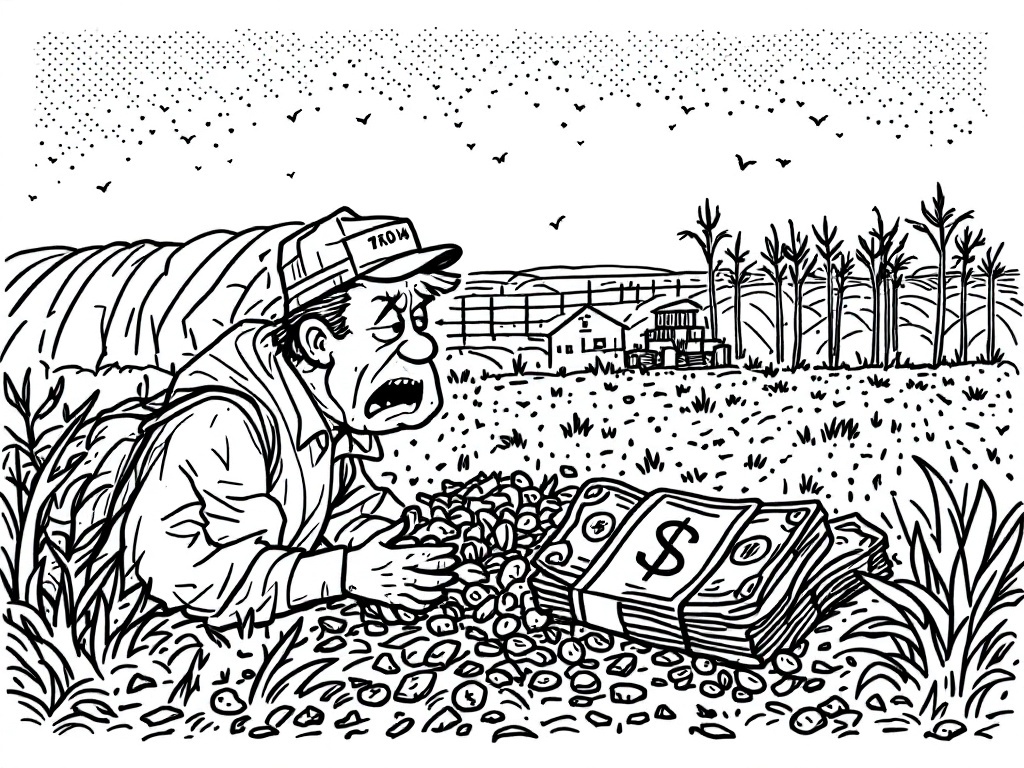U.S. Farmers Face Financial Strain from Tariffs and Weather Challenges

Washington, D.C., Tuesday, 15 April 2025.
Financial hardships prompt U.S. farmers to seek government bailouts amidst Trump’s tariffs and extreme weather, risking crop losses and market disruptions. Concerns rise as Brazil benefits from U.S.-China trade conflicts.
Current Economic Pressures on U.S. Farmers
As of April 2025, U.S. farmers are facing severe economic pressures due to a combination of President Trump’s aggressive trade policies and challenging weather conditions. Trump’s tariffs, particularly those targeting China with a 145% tariff effective from April 9, 2025, have resulted in significant financial strain on agricultural sectors, notably affecting the export of key commodities such as soybeans and corn [1][2][3]. Concurrently, extreme weather events, including unprecedented heavy rainfall in regions like the Rio Grande Valley, have caused devastating crop losses, exacerbating the financial difficulties faced by farmers [1].
Impact on Global Trade Dynamics
The ongoing trade tensions between the U.S. and China have inadvertently provided an economic boon to Brazil, whose agricultural exports to China, particularly soybeans, have surged due to competitive pricing and quality [4]. This shift is largely attributed to China’s strategic redirection of its purchases away from the U.S. amid the tariff-induced trade disruption [3]. As a result, U.S. farmers who heavily relied on Chinese markets are experiencing a significant downturn in demand, pushing them further into financial distress [4].
Federal Assistance and Political Reactions
In response to mounting economic challenges, U.S. farmers and political leaders are calling for further government bailouts. This echoes previous assistance provided during similar trade disputes, with Trump’s administration having allocated $28 billion in bailouts during the first trade confrontation with China in 2018 [2]. Politically, the situation is tenuous as Republican senators from states like North Carolina and Kansas have expressed concern regarding the long-term impact of these trade policies on the agricultural community, advocating for immediate relief measures to mitigate the financial burden on farmers [5].
The Path Forward
Amidst these challenges, U.S. Agriculture Secretary Brooke Rollins announced the potential development of a new relief plan for farmers, although specific details remain undisclosed as of April 13, 2025 [6]. This uncertainty, coupled with the threat of reciprocal tariffs once Trump’s 90-day tariff pause expires, adds to the apprehension felt by agricultural stakeholders across the nation [7]. The complex interplay of geopolitical trade strategies and climate-induced agricultural disruptions emphasizes the urgent need for sustainable policy solutions to safeguard the future of U.S. farming industries.
Sources
- www.theguardian.com
- www.latimes.com
- www.cnn.com
- www.ft.com
- en.wikipedia.org
- www.tortoisemedia.com
- www.ft.com